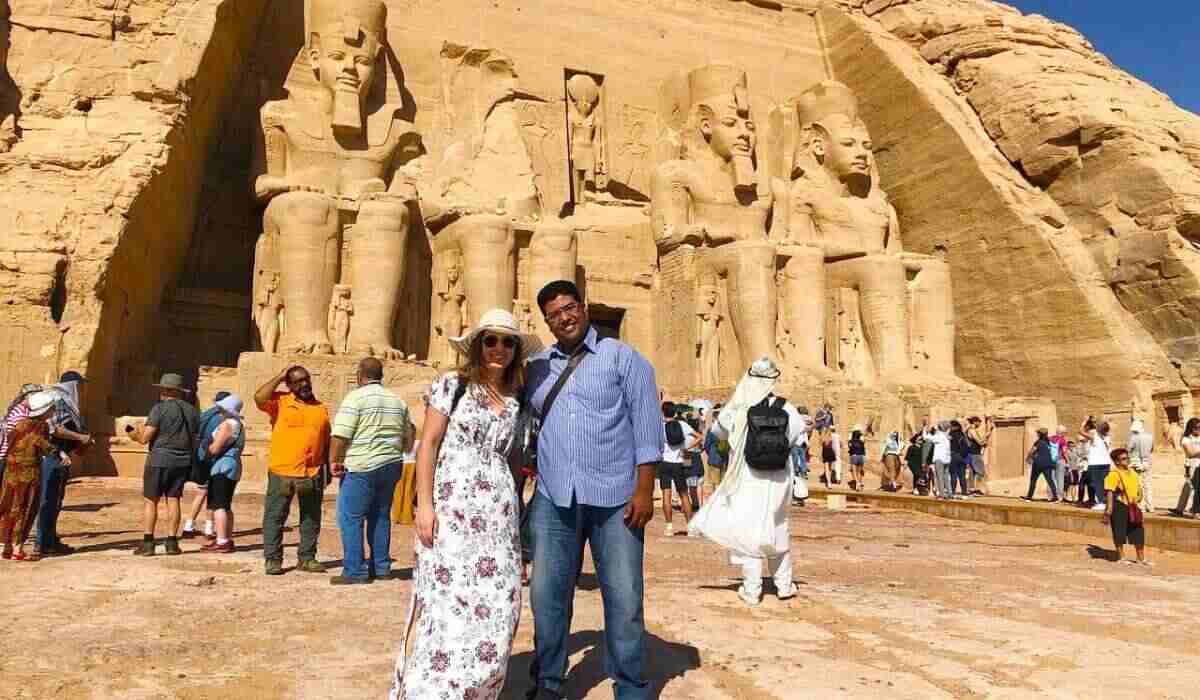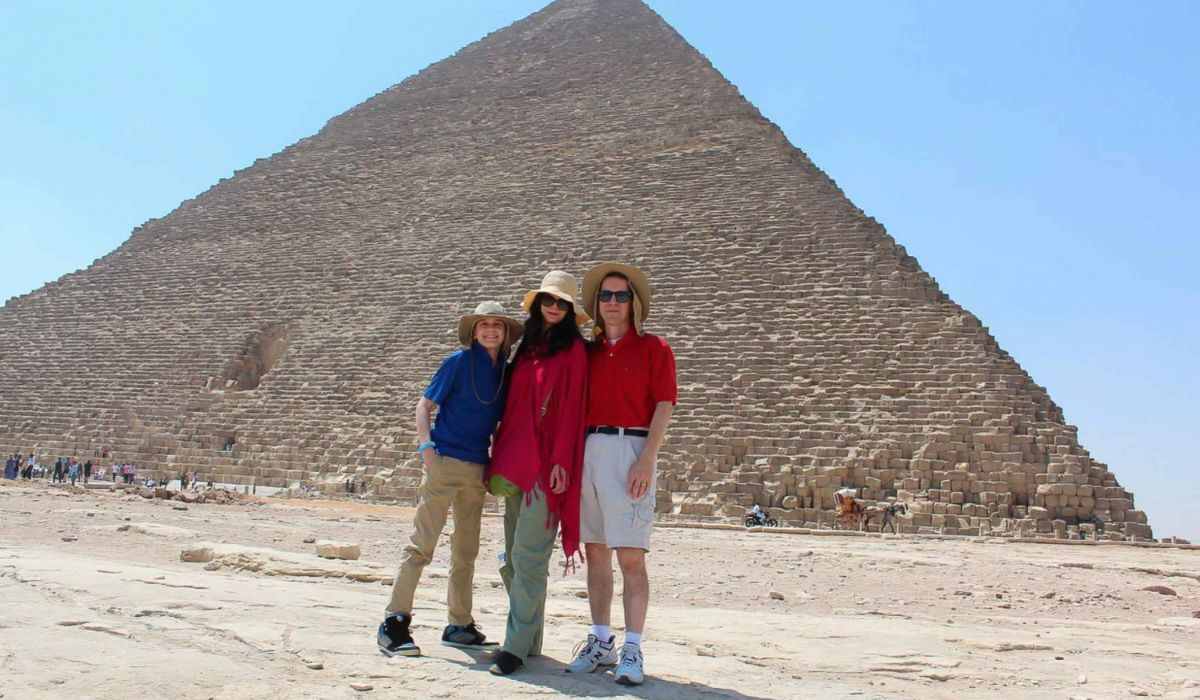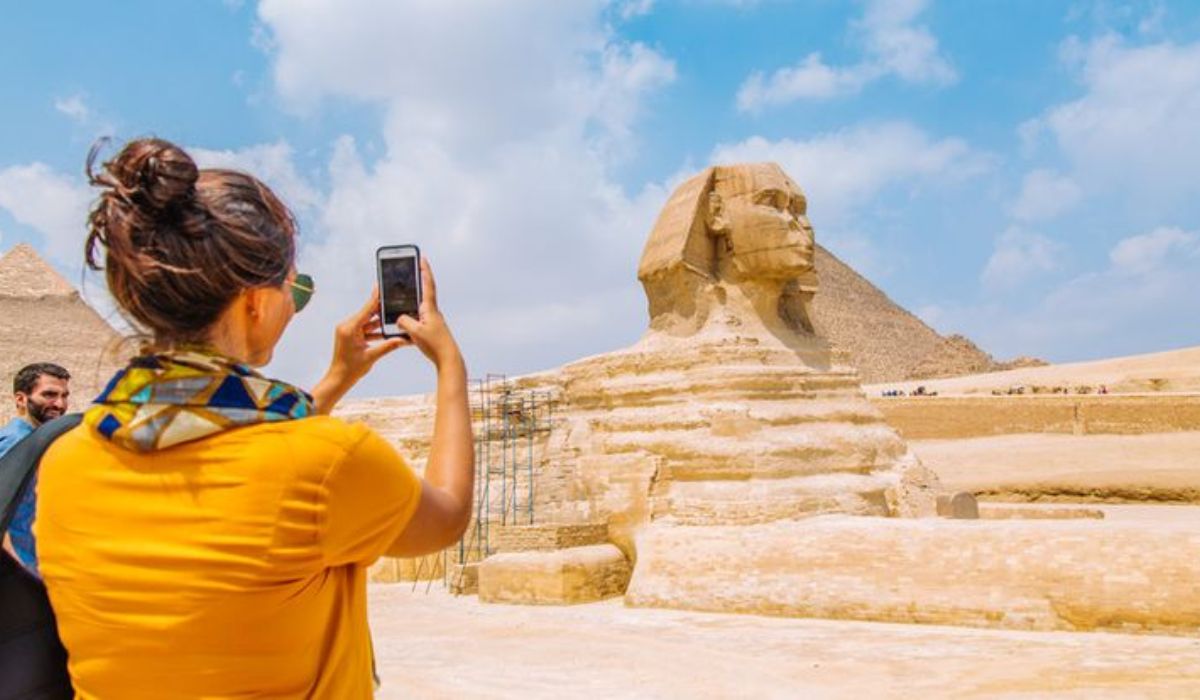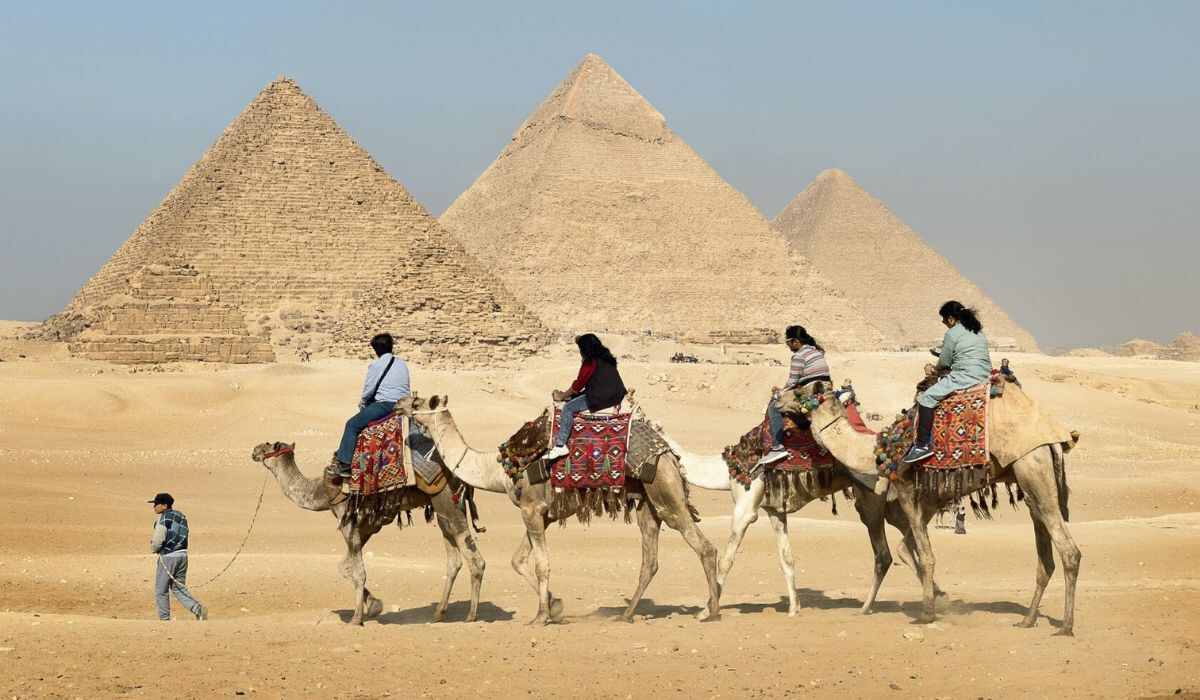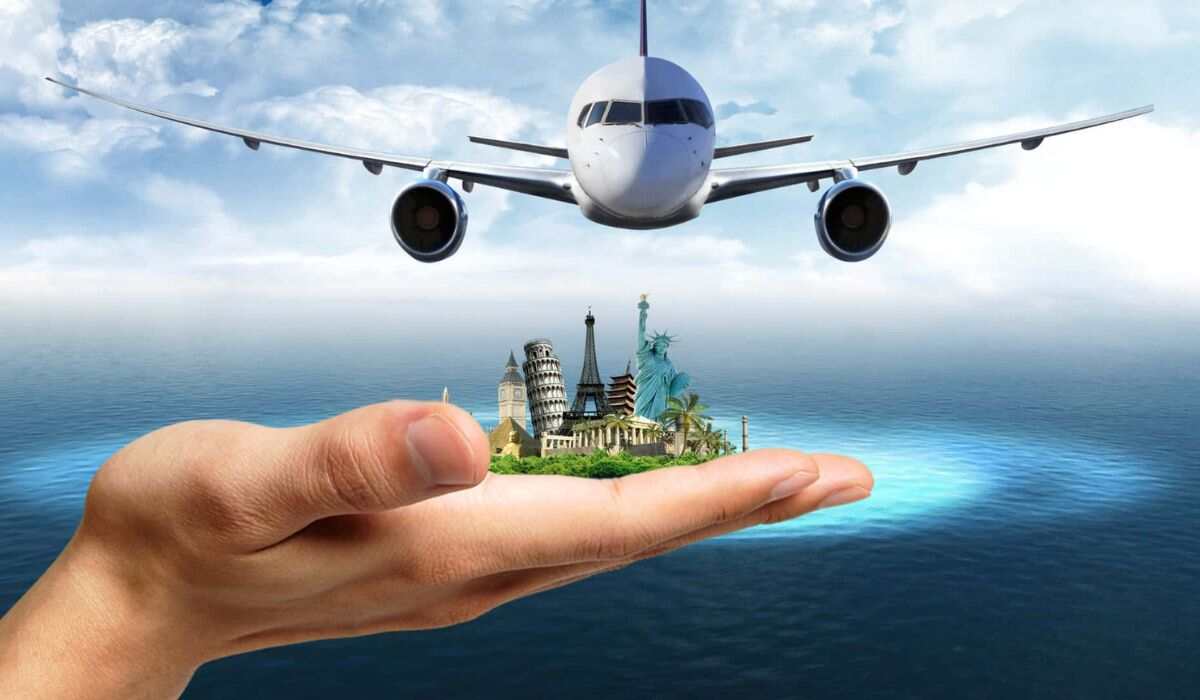Travel to Egypt offers an unparalleled experience to discover one of the richest histories in the world. Home to iconic sites like the Giza pyramids and Valley of the Kings, Egypt contains landmarks that have captivated travellers for millennia. As with any international destination, safety is a key concern when planning a trip.
Much of Egypt can currently be explored safely and enjoyably. This brief overview will outline some basics for travel to Egypt, including considerations around popular tourist areas, current travel advisories, and simple precautions that allow one to immerse oneself in the country’s wonders with peace of mind.
From massive pyramid temples and the grandeur of Luxor to lively local markets and beaches along the Red Sea – understanding a few fundamentals paves the way for an inspiring Egyptian adventure.
is Egypt safe?
Egypt has a fascinating history and culture that many travellers want to experience. Safety is a top concern when exploring anywhere in the world. The good news is, with some basic precautions, most of Egypt remains safe to visit as a tourist.
The main cities like Cairo and Luxor see millions of visitors each year without major issues. These areas have strong security at popular landmarks. You’ll be among big crowds, making trouble less likely. Stick to main streets and licensed taxis at night.
Some desert and coastal sites can also be reached without problems on guided tours. Operators know safe routes and prevent problems. Independent travel is not advised off the beaten path in remote or border regions.
Travelling to Egypt
Egypt is home to incredible ancient sites and a unique culture. Here’s a quick overview to help you plan your Egypt trip:
- Visas are available on arrival at airports for most nationalities. Make sure your passport is valid for 6 months beyond your trip.
- Egypt uses the Egyptian pound. ATMs are common in cities but also carry some US dollars or euros as backup. Small bills are best for taxis.
- Most visitors start in Cairo. Must-sees include the Pyramids, Sphinx, and Egyptian Museum. Take a sound-and-light show for views at dusk.
- From Cairo, day trips or overnight trains go to Luxor for temples like Karnak and valleys of kings’ tombs. Cruises on the Nile are also popular.
- Alexandria on the Med coast is great for beaches, the catacombs, and the modern downtown. Dive or snorkel at nearby reefs.
- Desert oases like Bahariya offer tranquil retreats. Take a 4×4 safari through canyons to hot springs.
- The Red Sea is famous for diving and snorkeling coral reefs. Sharm El Sheikh, Hurghada, and Marsa Alam have resorts.
- Markets are fun for souvenirs but haggle prices down. Egyptian food like shawarma and kushari is cheap and delicious everywhere.
Egypt’s Current Security Environment
In recent years, Egypt has faced sporadic terrorism incidents targeting both locals and foreigners. Major attacks include the 2015 downing of Metrojet Flight 9268 which killed 224, mostly Russian passengers, and a 2017 shooting at St. Catherine’s Monastery that left one security guard dead. Such events have generally occurred in more remote areas like the Sinai Peninsula.
The US State Department currently assigns Egypt a Level 2 travel advisory, meaning “Exercise Increased Caution.” They warn of terrorism and kidnapping risks, especially in areas near the Sinai and Western Desert borders with Libya and Israel.
To better understand risks in specific regions, Egypt is divided into four zones by the State Department:
| Zone | Level | Risk |
| Cairo, Alexandria, Nile Delta, and Coastal Regions | Level 2 – Exercise Increased Caution | Moderate risk of terrorism. Most tourist sites are considered low-risk. |
| Sinai Peninsula (except for resort areas on the Red Sea coast) | Level 3 – Reconsider Travel | High risk. Restricted areas include North Sinai and areas west of the Nile Delta. |
| Western Desert | Level 4 – Do Not Travel | Risk of extremist kidnappings and roadblocks. |
Isolated incidents still occur, with basic precautions historic cities and major attractions remain largely accessible for independent travellers. Group trips to these destinations are generally considered safe options for American visitors considering travel to Egypt.
what is the current situation in Egypt?
The situation in Egypt has stabilized in recent years after political upheaval in the 2010s. President Abdel Fattah el-Sisi has remained firmly in control since first taking office in 2014. Security concerns that once plagued major cities have largely diminished nationwide, except in the Sinai Peninsula near the Gaza border where an ongoing ISIS insurgency operates.
Elsewhere, daily life has normalized for Egyptians and the economy is improving as tourism revenue rebounds post-pandemic. Vaccination rates are rising and Covid19 restrictions have eased. While some push for political and economic reforms continues, stability has been restored compared to periods after the 2011 revolution.
Control of the Suez Canal and peace with Israel maintain Egypt’s important regional role. With precautions mostly limited to remote border areas like Sinai, Egypt is regaining its status as a prime tourism destination where visitors experience ancient landmarks and local culture in safety once more.
Is it safe to travel to Egypt right now from the USA?
Traveling to Egypt has some safety considerations for Americans to be aware of. The US currently has Egypt at a Level 2 Travel Advisory due to risks of terrorism and kidnapping. This risk is greatly reduced in major tourist areas like Cairo, Luxor, and the Red Sea coast.
Americans can explore Egypt’s fantastic sites and culture by sticking to populated areas, taking licensed taxis at night, and arranging guided tours outside cities. Independent travel is recommended in more than just the Sinai Peninsula and remote border regions with advisories to reconsider travel.
Is it safe to travel to Sharm el-Sheikh?
Sharm El-Sheikh is considered one of the safest tourist resorts in Egypt, located on the southern tip of the Sinai peninsula. As it hosts over 500,000 international visitors annually, terrorism and crime are extremely rare due to heavy security patrols. The resort city is well-isolated from conflict areas, with the last major incident in 2005.
Most visitors enjoy beach activities and relaxing without safety concerns. Minor hassles can include supply issues during occasional Bedouin protests or violent storms. However, with prudent precautions like avoiding deserted beaches at night, tourism to Sharm El-Sheikh continues without disruption. The Egyptian government works hard to maintain the resort’s image as an affordable, hassle-free diving and sun destination.
Is it safe to travel to Hurghada?
Hurghada on the Red Sea’s eastern coast also sees a large volume of tourists each year without security problems. Over one million foreigners frequent its hotels, restaurants, and famous scuba sites annually. Like Sharm El-Sheikh, Hurghada faces little risk of any terrorist activity due to a robust security apparatus.
Travelers are assured safety in guided tours or sticking to central areas. Occasional banditry occurs in desert outskirts, tourists never encounter violence sticking to the insulated tourist trail.
Minor scams may target people, but these nuisances do not endanger safety. Hurghada offers a highly developed tourist infrastructure and emergency support systems to further assure peace of mind for independent explorers and families visiting its scenic shoreline.
Travel Advisories for Egypt
The US State Department maintains a Level 2 advisory for Egypt, indicating to exercise increased caution due to threats of terrorism and kidnapping. It notes risks are greatest near the Sinai and Western Desert borders. It also says most visits are safely undertaken by exercising normal safety precautions. Canada and the UK also assign moderate risk levels.
All advisories emphasize terror threats tend to occur in remote areas, and highly touristed cities like Cairo are typically safer. Visitors are urged to continually monitor updates in case risk levels suddenly change in volatile regions.
Safety in Specific Areas in Egypt
The Sinai Peninsula, excluding Red Sea coastal resorts, carries the highest terrorist risks. Most dangerous is North Sinai where an ISIS affiliate remains active. The Western Desert also poses threats from insurgent kidnappings.
More moderate risks include Alexandria and the Nile Delta, while Cairo, Luxor, and coasts are deemed a lower threat. Citizens are advised to avoid protests, isolated border zones near Libya and Gaza, and follow curfews if imposed. Major attractions across the country can still be toured with licensed operators. Millions annually travel safely to temples, pyramids, and resorts with nuanced security measures.
Safety Concerns Specific to U.S. Visitors
As citizens of a nation actively involved in Middle East conflicts, Americans may face marginally higher security risks than locals or other nationalities in certain situations. While discrimination based on nationality is illegal in Egypt, anti-American sentiment does unfortunately still exist among some extremist elements.
Some common scams targeting foreign tourists include taxi drivers significantly overcharging rates, claims of “mandatory tourist fees” that don’t exist, and aggressive sales tactics at markets. To avoid confrontation over sensitive topics, it’s best not to discuss political or religious views openly. Also, steer clear of protests or large crowds prone to petty theft.
At major archaeological sites, museums, and churches, stick solely to licensed tour guides displaying official identification. Independent exploring can put travellers at risk of being accidentally caught in restricted or dangerous areas.
Recommended Areas to Visit – and Avoid
The cities of Cairo, Alexandria, Luxor, and the Red Sea coast containing resort towns like Hurghada and Sharm El Sheikh are widely considered the safest regions for American tourists currently. With millions of local and international visitors annually, terrorism is avoided due to the presence of large security forces.
Some other regions can be visited safely on an escorted group trip with a trusted operator like Atlas Obscura, G Adventures, or Intrepid Travel. These include:
- Upper Egypt along the Nile River visiting Aswan and Abu Simbel
- The Western Oasis desert towns near the Libyan border like Bahariya and White Desert
Independent travel is not recommended to the following high-risk areas as designated by current U.S. government advisories:
- North Sinai and areas west of the Suez Canal
- Western Desert governorates like Matrouh near the Libyan border
- Avoid protests or politically sensitive events where crowds may gather
Staying within the safer zones for trip activities greatly minimizes risks while still enabling cultural discoveries across this historic North African country.
Best Ways to Travel Safely
For increased security, American visitors should consider the following precautions when exploring Egypt:
- Take an escorted small-group tour from a reputable operator for guided access to all destinations
- Only visit areas designated as low risk by checking up-to-date government advisories
- Register with the U.S. Embassy upon arrival in Egypt using their online system
- Carry contact info for your hotel/tour company at all times
- Only take licensed taxis marked with green/white license plates
- Avoid political or religious discussions that could offend
- Photocopy important documents like passports & leave copies with someone abroad
- Leave valuable jewelry or excess cash/credit cards in a hotel safe when touring sites
- Stay alert in crowded markets which are favorite targets for petty theft
Tour operators like Intrepid Travel offer small groups of 10-16 people accompanied by licensed guides. Their itineraries focus on cultural immersion and activities throughout Egypt while reassuring travelers of security protocols. Tourists can explore freely without the risk of getting lost or scammed independently.
Frequently Asked Questions
Do I need a visa to enter Egypt?
Most nationalities can obtain visas on arrival at airports for around USD 25. Make sure your passport is valid for at least 6 months.
What’s the currency in Egypt?
The Egyptian pound. Cash machines are widely available but also carry some US dollars or euros as a backup. Small notes are best for paying taxis and street vendors.
Is it safe to drink tap water?
No, only drink bottled water to avoid illness from bacteria in municipal taps. Look for sealed bottles from reliable brands.
What is the weather like?
Warm temperatures year-round along the coasts. Hot and dry in summer, especially inland. Spring and autumn are mild and comfortable seasons to visit most places.
Can I bargain at markets?
Yes, haggling for better prices is expected at souq markets and street stalls. Start with around half the listed rate and meet in the middle. Be polite and smile through negotiations.
Conclusion
Egypt offers a wealth of historical and cultural treasures that make it a truly unique and memorable travel destination. While it’s important to be aware of safety considerations and monitor updates, most of the country can now be explored safely through simple preventative measures.
By sticking to populated areas, joining guided tours when necessary, and taking normal precautions, visitors can experience Egypt’s ancient wonders and hospitality without undue risks. From awe-inspiring pyramid temples to lively local markets, Egypt invites discovery of its rich past and present.
